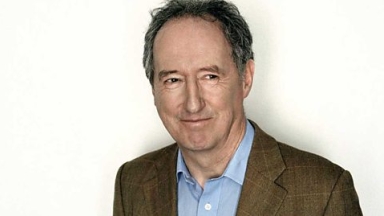'Liberal' BBC journalists still need to be given more 'education' when it comes to religion, a senior corporation presenter has said as he cautiously welcomed today's publication of an internal review into boosting coverage of the faiths.
Roger Bolton, the long-time BBC producer and presenter of Radio 4's Feedback programme, said the review showed 'good intentions, but what is required is a continuing programme off religious literacy. Journalists are often like me, from a liberal, arts background and there needs to be a continuous programme of education.'

Bolton, a former presenter of Radio 4's Sunday programme who has been a long-time critic of what he sees as defficient religious coverage on the BBC, told Christian Today: 'Two cheers. It is a step in the right direction, and I particularly welcome the creation of religion editor for BBC news. But there are some concerns about the detail: the BBC is willing the ends but is it willing the means? As far as I can see there is no head of religion at the heart of the organisation who has the expertise and also the power to ensure this is implemented. There aren't any additional resources or as far as I can see targets for output directors. There are good intentions, but what is required is a continuing programme off religious literacy.
'It would be churlish not to say that this is a very welcome turn in direction. It certainly shows a real awareness of the problem. But at a time when the BBC is having to cut budgets, it will be a real test over whether this is actually translated into action. It used to be said that the key in the BBC is programme slots and money – as far as I can see nobody is being given programme slots and nobody is given money.'
Meanwhile, Church figures also cautiously welcomed the BBC's renewed commitment to boosting its coverage of religions following the review.
The Sandford St Martin Trust which promotes excellence in religious programming welcomed the review's publication today, but called for the BBC to prove its commitment to promoting religious literacy by appointing an overall editor for religion.
The Bishop of Repton and chair of the trust, Jan McFarlane, said: 'The trust welcomes this review in that it emphasises the importance of religious literacy in understanding our world. We need to understand other faiths in order to live together peacefully and the media play a central role in this. But, while we are encouraged by the report's general direction and the seriousness with which the review has been undertaken, we need to see how the recommendations in the report will be translated into practice before we can judge its effectiveness.'
Nicholas Baines, the Bishop of Leeds and patron of the trust said: 'The BBC has three Reithian "purposes": inform, entertain, educate. I would like to propose a fourth: interpret. The world needs to be interpreted, not just reported. And to do this effectively, the lens of those being reported to needs to be looked through and understood. This means that religion needs to be taken more seriously by the BBC in its future shape and remit. Religion is a prime motivator of individuals and communities, inspiring and informing their political, economic, ethical and social behaviour – probably also their emotional engagement with what is going on in the world and in them.'
The BBC itself today pledged to 'raise our game' on religion following the review.
The corporation said it would also create a new global religious affairs team, headed by a religion editor, in BBC News.
And it confirmed it will keep the religious slot Thought for the Day on BBC Radio 4's Today programme – despite internal criticism including from the presenter John Humphrys, who called it 'deeply, deeply boring'.
BBC director general Tony Hall said audiences of all faiths and none have said they want to learn more about the faiths. 'They recognise that, if we truly want to make sense of the world, we need to understand the systems of belief that underpin it,' he said.
Hall added that he wants the corporation 'to do more about Christianity and other beliefs as well'.
The BBC said in a statement: 'Today's plans will enhance what the BBC can deliver and increase our ambition for religion and ethics - helping people understand the world they live in better, and providing tools and knowledge that will inform their lives...The plans include increasing our specialism in News, with investment in a global team containing new reporters, with specific religious expertise, coordinated centrally by a religious affairs producer. We will also upgrade the Religious Affairs Correspondent role to Editorship level, with the new title of Religion Editor. We also plan for landmark series and programmes to reach wide audiences, with a Year of Beliefs in 2019; diversifying our range of contributors and enhancing portrayal in mainstream programming; improving religious literacy inside and outside the BBC; and helping people understand their values and decisions through innovative content across a range of genres, including using archive content which remains relevant online.
'We believe that these plans will ensure that the BBC better reflects the UK, the world, and the role that religion plays in everyday life. They will also raise understanding of the impact religion has on decisions made at home and abroad.'













